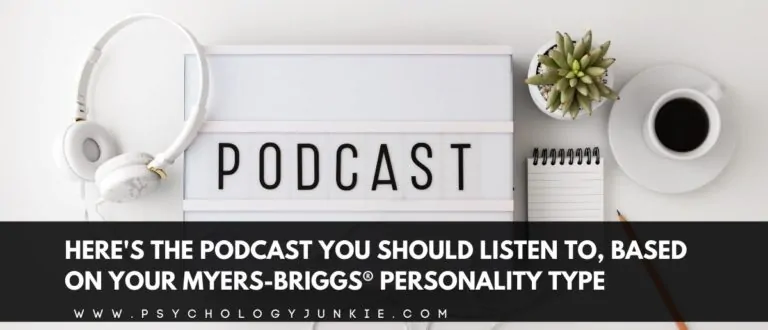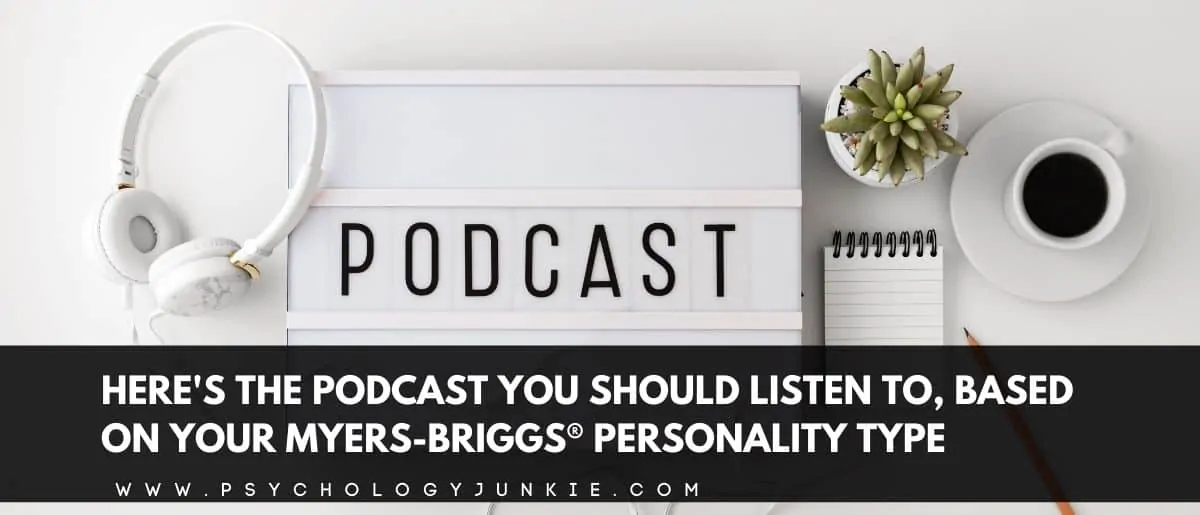Why You Should Defy Your Personality Type
“I’m an INTJ. I don’t belong at social events.”
Since learning type theory, I have thought this to myself many times during social events. I look around, watching others laughing and happily engaging in conversations about sports, the state of friends and family, or other small talk. My narrow interests rarely happen to be conversation subjects. “Yep,” I think, “I don’t fit in here, and it’s perfectly normal and okay to just silently listen to everyone else. Maybe even read something on my phone, or leave.”

And after telling person after person that types are not boxes, I choose to stay in my box.
Table of contents
- The Temptation to Box Yourself In
- The Subconscious Side of Yourself
- The Path to Growth
- Ways to Get In Touch with the Other Side of Your Personality:
- For ENFPs (ISTJ subconscious)
- For ENTPs (ISFJ subconscious)
- For INFPs (ESTJ subconscious)
- For INTPs (ESFJ subconscious)
- For ENFJs (ISTP subconscious)
- For ENTJs (ISFP subconscious)
- For INFJs (ESTP subconscious)
- For INTJs (ESFP subconscious)
- The ESFP (INTJ subconscious)
- The ESTP (INFJ subconscious)
- The ISFP (ENTJ subconscious)
- The ISTP (ENFJ subconscious)
- The ESFJ (INTP subconscious)
- The ESTJ (INFP subconscious)
- The ISFJ (ENTP subconscious)
- The ISTJ (ENFP subconscious)
- What Are Your Thoughts?
Estimated reading time: 14 minutes
The Temptation to Box Yourself In
From the perspective of the type enthusiast, it’s nearly impossible to put other people in boxes. After identifying someone’s four-letter code, I can often correctly predict some of their preferences and general tendencies. But whenever I subconsciously painted limits of what they could or couldn’t do, I soon saw them burst out of my box and surprise my expectations. ESFJs can give wisdom that sounds a lot like the cognitive function of introverted intuition sometimes. ENFPs sometimes use extraverted sensing humor when they believe it will entertain their listeners. There are no “type limits.”
But for me, it’s a different story. In my personal life as a type enthusiast, I am constantly aware of which cognitive functions I am using and where my strengths and weaknesses are. When I’m entering a situation that does not rhyme with INTJ, red indicators immediately light up on my dashboard. I realize the path forward is not comfortable or easy. I think, “This is where any other INTJ would just leave it be. I don’t need to make friends at this social event. I don’t need to join this athletic game and make a fool out of myself. Any other INTJ would go home.” And I go home, comfortable, lonely, and dissatisfied.
The Subconscious Side of Yourself
We learn from the psychologist C. G. Jung’s teachings of the cognitive functions that every type has the opposite type in the background of their mind, less developed but every bit as real as the type at the forefront. For the INTJ, neglecting the ESFP subconscious only leads to a strong hunger for real life and human love. When I “go home” from uncomfortable situations, I often find myself binging Spotify to feed my extraverted sensing side, or reading adventure stories with strong friendships to feed my introverted feeling side. However, such activities are much like taking a nap to substitute for a good night’s sleep or eating an orange for supper. I could have played that sport and developed my extraverted sensing; I could have hung out with friends at the event and satisfied my introverted feeling.
Personality theory has both helped and worsened my struggles as an INTJ. Before discovering personality theory, I was not aware of my inherent weaknesses in the same way I am now. I hated my seeming inability to “feel love” towards other people. Since then, I have been easier on myself for my weaknesses. However, I have also become lazy in ways that I hadn’t been lazy before discovering personality types. I am tempted to just “do my thing,” being blunt where courteousness is due and withdrawing where I need to get into the action, using my type as an excuse. I am constantly comparing myself to the stereotype of the INTJ, an idea developed from memes that are often intentionally exaggerated to be funny. Writing from the perspective of Screwtape, C. S. Lewis once wrote in The Screwtape Letters, “All mortals tend to turn into the thing they are pretending to be.” Personality theory is one unfortunate example of this fact. And I have found myself to be evolving into someone I am not — the INTJ stereotype.
The Path to Growth
Since then, I have made it a practice to take active steps to defy the stereotype of the INTJ. As a freshman in college, I am continually meeting new people. That includes initiating conversations with girls. (Yikes.) And while I carry a disinclination towards small talk like every other INTJ, I engage in it anyway because it’s more effective than beginning with deep, personal questions.
Please don’t misunderstand me: It is absolutely possible to overload yourself beyond your limits, which I do not encourage. Defying my type as an INTJ doesn’t necessarily mean meeting the five unfamiliar young people at the nearest table at the dining hall and cracking jokes with them. However, even starting with small steps and gradually working yourself up can be beneficial. Personally, having dinner to get to know some friends I am already somewhat familiar with — and engaging with significant dialogue — can be nerve-wracking yet satisfying enough for my ESFP subconscious.
But you may not be an INTJ. Maybe you’re, say, the ENFP – the type that has difficulty focusing sometimes. And you have a deadline. And again, you’re an ENFP. Well, unlike my difficulties with social events, ENFPs have little choice but to develop that ISTJ subconscious, because otherwise they would probably miss their deadlines. Thankfully, even a little bit of planning goes a long way – recording due dates on a colorful calendar to enjoy the security of being in the know, for example, or planning out what portions of an assignment they will do each day. Not to mention the hard part: sticking to it. I believe that is why many ENFPs learn responsibility rather early in life – they are prompted to make use of their introverted sensing and extraverted thinking, and they find that while it is hard work, they rather enjoy it.
My ENFP homeschooling mother, in fact, has kept track of the lessons my siblings and I have completed in school for many years. When we started messing up, she could always call in my ISTJ father for help. Yet the amount of record-keeping she can do on her own is amazing, given that she is using different grade levels, different subjects, and different curricula, and I believe those talents reflect her many years of hard work developing her own ISTJ subconscious throughout high school and college.
The idea behind Jung’s theory, when I think about it, is almost ironic. Given our biggest strengths, we automatically know that our hidden, less-developed abilities are the exact opposites of those strengths. If we develop and use them, they become almost our “secondary strengths.” By maintaining this balance of opposites, we become well-rounded and happier.
Ways to Get In Touch with the Other Side of Your Personality:
For ENFPs (ISTJ subconscious)
Take moments to reflect on the past and lessons you want to re-create or re-apply to your life. Think of pleasant routines you enjoy and make them a part of your week (for example, every Sunday morning you could watch cartoons and make pancakes, etc,.) Try paying a bill or getting some other boring task out of the way right away instead of putting it off.
For ENTPs (ISFJ subconscious)
Take some moments to think about the meaningful people who have been a part of your life. Take a moment to write a letter to one of them. A real, tangible, snail-mail letter. In the letter, list the things you appreciate about them. Thank them for their contributions to your life. Enjoy the sensation of the pen in your fingertips and the paper below your hands. Take time to organize a part of your home and make it pleasing to the eye. Pause and reflect on life lessons or routines you could apply to your life today that would improve your overall comfort.
For INFPs (ESTJ subconscious)
Think about something you’ve been putting off doing (or need to do, but haven’t put off). Prepare for and organize for that task. Determine the most efficient way to get it done or involve others to help you. Think of a goal you have for your life. How could you make it more measurable? For example, instead of “I want to write a fantasy novel.” You could create a goal of “I want to write the first draft of a chapter in my fantasy novel every week. Then, the next week I’ll proofread and edit it. I hope to stick with this schedule for the next two months at least.”
Read This Next: 24 Signs That You’re an INFP, the Dreamer Personality Type
For INTPs (ESFJ subconscious)
Take some time to recall the important people in your life to whom you are grateful. What values did you have in common? Think of the shared values you appreciated, or the values that were different. Take some time to acknowledge that person through a phone call, text message, email, or snail mail message. Be specific in acknowledging various lessons they taught you or kind deeds they did for you. When you go to work, school, or a family gathering, think of ways you could help an individual person. Could you bring them a coffee? Help with the dishes? Think of one or two small, simple ways you can be an encouragement to others.
Read This Next: 10 Things That Excite the INTP Personality Type
For ENFJs (ISTP subconscious)
Think about something that is important to you. In order to believe in this important truth, what assumptions did you have to agree to? Examine the roots of those assumptions and look for data to fill out the categories within that. Examine contesting as well as agreeing information in order to understand the principles and tenets of your values. Practice being skeptical and questioning for manageable periods of time. Also take time to experience the world around you in a tangible way. Get outside and go running, go fishing, or go driving while listening to some of your favorite, most inspiring songs.
For ENTJs (ISFP subconscious)
Take time to think about what’s important to you on an individual level. What beliefs, values, and ethics do you feel strongly about? Take some time to write them down and think them over. How could you support those values more fully today? Consider what it means to live in harmony with your values and ethics. Consider the people you love – What are their values? What seems important to them? How could you honor not only your own, but their values? Take time to get in touch with the sensing side of your personality. Dance, listen to music, take a leisurely drive, or learn some interesting facts about the real, tangible world you live in.
For INFJs (ESTP subconscious)
Take time to immerse yourself in the physical world around you. Go stargazing in your backyard, sled down a hill, swim in the ocean, go birdwatching! Take time to observe the world in all its physical beauty. When you’re feeling pressured to bend for someone else’s desire, practice sticking to your guns and doing what you feel is logical for you instead. Don’t make excuses for your choice, either. Simply be okay with stating your decision and not apologizing.
Read This Next: 24 Signs You’re an INFJ, the Mystic Personality Type
For INTJs (ESFP subconscious)
Take some time to interact with the world around you in a physical way. Take a quiet walk in nature, go rock climbing, spend some time in the garden! Focus on the sights, sounds, and sensations of your experience. Try to stay present in the moment as much as you possibly can (unless it’s starting to trigger stress). Spend some time getting into the feeling side of your personality type as well! This could mean watching a movie that touches your soul, calling up a friend and asking how they’re doing (and really listening), or writing a poem about something that’s important to you.
Read This Next: 10 Intuition Hacks for INTJs and INFJs
The ESFP (INTJ subconscious)
Keep a journal by your bedside or in your purse and take time to jot down your random ideas, insights, or dreams. It may seem silly, and you may have no idea where the ideas you’re getting are coming from, but you may start to see patterns and relevance in your daily life as you continue. Spend some time each day in a quiet place and allow ideas and thoughts to flow through your consciousness. Also, take some time to get in touch with the thinking side of your personality type. Think of a task you’ve been putting off; how could you organize that task in an efficient way to make sure it gets completed ahead of time?
Read This Next: What It Means to be an ESFP Personality Type
The ESTP (INFJ subconscious)
Be still in a place where you have few distractions from the outside world. Leave your phone, tablet, or laptop elsewhere. Have a notebook ready so that you can jot down any thoughts, ideas, or symbols that come to your mind. Practice this in small increments, gradually getting longer as you feel your stamina for this activity grow. Practice observing people’s feelings and noticing if someone seems like they need a listening ear or a helping hand. Acknowledge people verbally when they do something that helps you in some way.
The ISFP (ENTJ subconscious)
Practice thinking through your needs in an “if, then” way. For example, “I want to learn French. If I learn French, then I will travel to Paris. If I go to Paris, I will feel inspired. If I feel inspired, I will know myself better. If I know myself better, I will get better at my art. If I get better at my art, I will have a career I love. If I have a career I love, I will be happy.” This process can help you to logically identify your core needs and then identify more efficient, practical ways to meet those needs. Practice setting measurable goals for yourself; instead of “Learn French” it could be “I want to learn ten new French words every week.”
Read This Next: What It Means to be an ISFP Personality Type
The ISTP (ENFJ subconscious)
Practice watching people to see if you can accurately identify their feelings. Notice how frequently you read or misread people’s feelings, and think about ways you can help others emotionally. For example, if you know a friend is depressed, could you invite them on a bike ride or out to a movie? Practice being more forthcoming with people who have earned your trust, even if it feels awkward at first. This vulnerability and openness can help create stronger bonds.
Read This Next: ISTP Personality Profile
The ESFJ (INTP subconscious)
Examine your behaviors carefully and think about the beliefs, values, and perceptions that have led you to behave in these particular ways. What are the roots of those values? What assumptions are you making in order to maintain these? Practice being skeptical and asking yourself tough, logical questions to root out what is accurate and what could be inaccurate in your foundational beliefs. Fill in your mental framework with new and more relevant data, fleshing out your beliefs and behaviors with truth that you can count on. Practice being open-minded to new information, even if it feels strange or far-fetched at first. Toy with “silly” ideas, brainstorm new ways to accomplish routine tasks, or go somewhere you’ve never been before!
The ESTJ (INFP subconscious)
Take some time to consider your values. What will matter to you at the end of your life? In what ways are you honoring your values? Perhaps you’re holding a grudge against someone, but at the end of your life you’d wish you had reconciled. Perhaps you’re so busy with work that your children’s lives are hurrying by too quickly and you’ll have wished you’d listen to them talk more at bedtime at each night. Examine the ways you can honor these deep, soul-longings of yours. It can be easy to push them aside in the busyness and bustle of everyday life. Allow yourself to feel things deeply, without pushing your feelings aside to “do” or to feel “tough.”
The ISFJ (ENTP subconscious)
Think about what your life would be like without limits. What would you do if nothing was holding you back? What would you say if you weren’t afraid of being misinterpreted? Write these thoughts down. Then ask yourself, “Why?” Why can’t I do these things? Why can’t I say these things?” And as you list all the things that could go wrong, take time to list all the things that could also go right. How could you change your restraints and look at the situations differently? You might find exciting new possibilities that you never considered before!
Read This Next: A Look at the ISFJ Leader
The ISTJ (ENFP subconscious)
Think of a problem you’re facing or a way in which you’ve felt stuck in a rut. Think of ten ways to circumvent that problem or break out of your shell. Perhaps you’ve been wanting to enter the dating world, but your reasons not to involve being shy, afraid, or too busy. Think of ten ways you could defy those limits! Perhaps you could call a friend for a pep talk, write a list of conversation topics, or cancel a non-essential obligation. At the end of it all, ask yourself “What’s the worst that could happen?” For example, you enter the dating scene, and are rejected. Then what? Remind yourself that everyone gets rejected, and that failure helps us grow and experience a fuller life. Brainstorm. Take risks. Practice telling yourself “So what?” Maybe your challenge isn’t dating; perhaps you want to start a new business, learn a new instrument, travel to a foreign country, or learn to drive a motorbike! There are so many possibilities when you open your mind. And don’t be afraid to ask for help, reach out to others, and express the more sensitive, inner side of who you are in the process.
Read This Next: 21 Hobbies That ISTJs Love
What Are Your Thoughts?
Did you like this article? Have you found some creative ways to get in touch with the subconscious “other” side of your personality? Let us and other readers know in the comments!
About the Author:

Subscribe to Our Newsletter

Want to discover more about personality type? Get the inside scoop with Susan Storm on all things typological, along with special subscriber freebies, and discounts on new eBooks and courses! Join our newsletter today!












Thanks for the article!! I think it will really help a lot of people, specially those who’ve been already some time into typology. I’ve found myself in situations exactly like these you wrote.
Keep up the good work! I’m sure you’ll help a lot of people! 😉
Thank you, Pablo!
Would like to learn more about how to develop my subconscious. I am a very INTJ INTJ, and maybe instead of addressing the typical weaknesses of the conscious, it would be more efficient to focus on the streghts of both the conscious and the unconscious. It there any bibliography where I can learn more about this? Or even better, can we expect future posts about the topic?
Hi Rodrigo! Thanks for the topic suggestion.
You can visit the resources page here:
https://www.psychologyjunkie.com/2018/05/15/type-resources/
I really appreciate this article because I feel like I’ve been putting myself in a box because of my typology. I realize now that I don’t always have to and there’s room for improvement and growth. Thanks for the article! It’s so beautifully written.
I’m so glad to hear that! Thanks, Efua.
Excellent article! Very enlightening!
Thank you! 🙂
I’m an INFP but I do make plans for some tasks, not all of them, but in some cases I’m an organized plus punctual kind of person, for example when I know that I should be doing this task on time, I do it in an amazing and responsible way otherwise I like to flow with what I want to do at the instant and maybe do multiple tasks at the same time or sometimes leave even the single one I’ve started. Does this somewhat deviate me from being an INFP or is it just normal ? Plus I do relate with a lot of INFJs but again and again I’ve been sorted as an INFP 4w5, Why?
Hi Aurora!
It is possible that you are regularly developing and enjoying your ESTJ subconscious as an INFP. As INFJs and INFPs do share the first three preferences (I, N, and F), you might relate to the INFJ in some ways. With that being said, there are other possibilities as well, and I couldn’t tell you with any certainty unless I got to know you better. Hope this helps.
ENTP – I’d love to write a letter, but my handwriting is so terribly illegible, I’d probably wind up offending anyone I wrote to. I learned to type over 100 WPM for a reason. 😉
I’ve definitely been realizing this more and more lately. I often feel insecurity and shame related to my weaker functions, aka my subconscious type. Te is my inferior function (I’m an INFP). I used to try to put too much pressure on myself and force myself to be efficient and perfectionistic all the time, but of course I wore myself out and I just didn’t hold. But I’m moving more towards setting smaller, practical goals for myself like adding more exercise into my routine and moving forward from there. I’m getting the help of my best friend who is an ESFP, which is convenient since Se is my trickster function (plus having a friend who is an extroverted sensor is so much fun). I’m so glad I know the cognitive functions bc it’s so helpful in understanding my own strengths and weaknesses and others’. Great article!